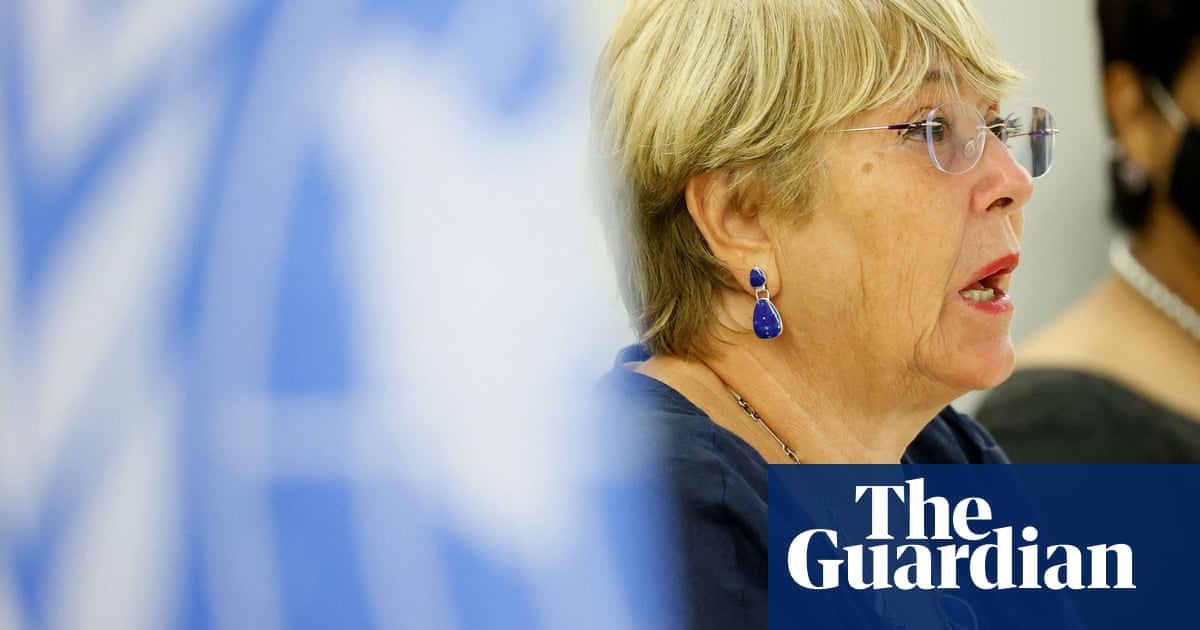
Show caption The UN high commissioner for human rights, Michelle Bachelet. Photograph: Denis Balibouse/Reuters Michelle Bachelet UN human rights chief to visit China, including Xinjiang, in May Michelle Bachelet’s announcement comes as 192 groups call for release of long-postponed report into region AFP in Geneva Tue 8 Mar 2022 15.51 GMT Share on Facebook
Share on Twitter
Share via Email
The UN rights chief has announced that she will make a long-delayed visit to China in May, including to Xinjiang, where activists and western lawmakers say Beijing is subjecting Uyghur people to genocide.
“I am pleased to announce that we have recently reached an agreement with the government of China for a visit,” Michelle Bachelet told the UN human rights council on Tuesday.
She said the office of the UN high commissioner for human rights (OHCHR) and Beijing had “initiated concrete preparations for a visit that is foreseen to take place in May”.
Nearly 200 rights groups meanwhile on Tuesday demanded that Bachelet’s office release its long-postponed report on the rights situation in Xinjiang.
“The release of the report without further delay is essential – to send a message to victims and perpetrators alike that no state, no matter how powerful, is above international law or the robust independent scrutiny of your office,” the 192 groups, including Human Rights Watch and Amnesty, wrote in an open letter.
There have been calls for the UN high commissioner for human rights to visit Xinjiang and to publish her office’s findings on the situation there.
Rights groups say that at least 1 million mostly Muslim minorities have been incarcerated in “re-education camps” in Xinjiang, a far-western region where China is accused of widespread human rights abuses including forced sterilisations of women and forced labour.
The US government and lawmakers in five other western countries have declared China’s treatment of the Uyghurs in Xinjiang a “genocide” – a charge denied by Beijing.
China says it is running vocational training centres in the region designed to counter extremism.
The Chinese government has for years said that Bachelet was welcome to visit Xinjiang, but an agreement on her demand for “meaningful and unfettered access” has until now appeared elusive.
On the sidelines of the Winter Olympics, UN secretary-general António Guterres told leaders in Beijing last month that he expected them to allow Bachelet to make a “credible” visit to China, including to Xinjiang.
And on Tuesday, Bachelet said an agreement had been reached.
“Preparations will have to take into account Covid-19 regulations,” she told the rights council.
“The government has also accepted the visit of an advanced OHCHR team to prepare my stay in China, including on-site visits to Xinjiang and other places,” she said.
“This team will depart to China next month.”
Bachelet’s spokeswoman, Elizabeth Throssell, confirmed to reporters that the high commissioner would visit the region.
“I can confirm that both the advanced team and the high commissioner will go or are due to go to Xinjiang, and obviously visit Beijing and other locations,” she said.
Throssell said negotiations had produced “an agreement on the parameters that respect our methodology”, including “unfettered access to a broad range of actors, including civil society”.
Diplomats in Geneva hailed the news of Bachelet’s visit.
“We welcome any effort to shed light on the systemic violations of human rights in Xinjiang,” said British ambassador Simon Manley. “We look forward to her report into the situation.”
The French mission in Geneva also welcomed the announced visit as “a positive development”.
It stressed though that the visit “must not obscure the urgency of publishing the report” on the rights situation in Xinjiang.
Observers in Geneva suggest the report has been ready since last August, but it remains unclear when it will be made public.








